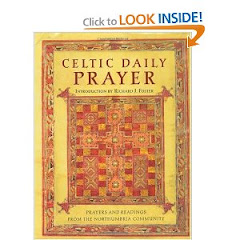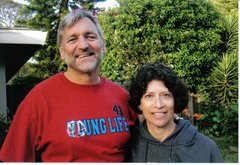If I have come to understand anything about my faith over the years, it is that it is about a relationship, not a religion. After much wandering, disappointment and confusion, I have come full circle back to the God of the Bible. However, this time around I have met Him through the person of Jesus Christ . . . the God man . . . the “second person” of the mysterious Trinity. It is now clear to me that my faith is based solely on the redemptive Grace of God Himself through Jesus Christ.
Of course, there are things we do to exercise our faith, including joining a group of other like-minded people for “worship” and fellowship. But, at the heart of it . . . at our heart and soul . . . is that “personal” relationship people speak of. And, that is what separates Christianity from all the other “religions”. To be sure, this is not about the “church”, which is the human manifestation of Christ in the world. Certainly, that is a part of it, but all too often the church does more harm than good in the Name of the One whose Name it is has taken. There are no perfect Christians, so it stands that there can be no perfect churches.
So, my point is to “point” others to Jesus. Look at the man he was, what he did, how he acted, because in that humanity he was exhibiting what we should all look like as God’s beautiful creations. Granted, we won’t be “complete” or perfected until Jesus comes “to make all things new”, but his example gives us the goal to aim for, the character to strive for. The other truth here is that we cannot and do not have to do this alone, in fact, it can only be done as we “abide” in Christ. When we focus on Him, read His Father’s (and ours) Word daily, and spend time with Him in prayer . . . He does the work within us.
The apostle Paul has written a great deal on how to live the life of “self sacrifice” that Jesus calls us to, and I always recommend his letters for a wealth of practical wisdom in that regard. However, for the motivation and encouragement from Christ Himself, I turn to John’s gospel, especially chapters 14-17, where Jesus exposes his heart to us and for us. This is where “relationship” begins and ends as far as I’m concerned. If we only had those few chapters, we could still get it right in this following Jesus thing. All the deep questions of life, including “Where is God when it hurts?” and many others are answered by Jesus in those chapters. You may not “get it” at first, but as you come back to those words of Jesus time and time again, it will become more and more clear.
For the purposes of clarity and some simple emphasis I offer the following quotes and excerpts from writer Philip Yancey. Yancey’s clear and straightforward language helps us grasp truths which have been expounded upon by many others before him, and he gives credit to the likes of C.S. Lewis, George MacDonald and many more for helping him grasp the truths for himself.
“Where is God when it hurts? He is in us.” Bearing the pain along with us, and working to bring some good out of the bad.
Paraphrasing Yancey, Jesus lived out an ideal for masculine fulfillment, even though it eludes men. The truth is, He lived out the ideal for humanity, male and female.
What was Jesus’ secret that we have lost? That outrageous love for sinners, for the worst among us, for all those who don’t meet society’s standards for acceptability. Churches are all too often pristine places of political correctness and “proper” image, instead of gathering places for people who desperately need Jesus. The “down and out” who flocked to Jesus when he walked on earth, no longer feel welcome among his followers!
This next one I will “steal” verbatim from Yancey because I cannot say it any better in, for and of myself:
“Grace comes free of charge to people who do not deserve it and I am one of those people. Now I am trying in my own small way to pipe the tune of Grace. I do so because I know, more surely than I know anything, that any pang of healing, forgiveness or goodness I have ever felt comes solely from the Grace of God. I yearn for the church to become a nourishing culture of that Grace.”
Finally, Jesus taught and lived the truth that we should have one particular distinguishing mark; not political correctness or moral superiority, but LOVE. And, this “love” is the kind that lays down life for the sake of others. It is a love that the world seldom sees, but desperately needs.










No comments:
Post a Comment